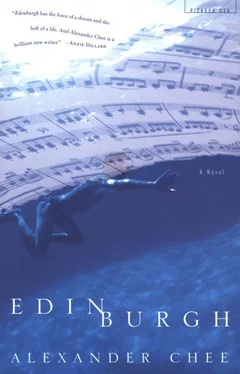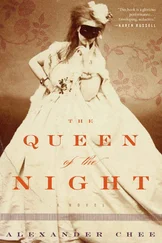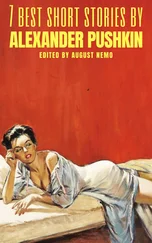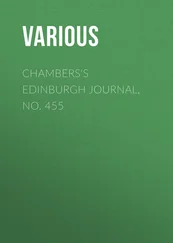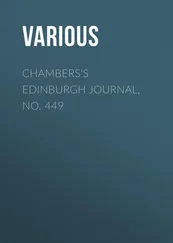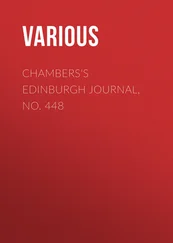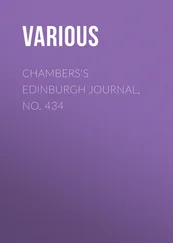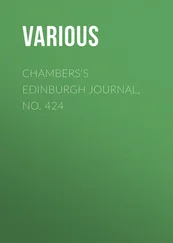Cat blows out of the harbor and the waves come out of its wake like water sprites cut loose to make mayhem. We almost don’t notice in time.
Fuck, Tom says, and he whips his oar into the water to shove us around. Get the stern facing the wave!
And too late I turn as he turns, too late as the kayak follows the wave up on its side. It doesn’t turn us all the way over, exactly, but the weight of the boat follows and then we are under. Here in the blue light of the water, I see Tom’s golden hair like kelp. I pull at my splash skirt, tug it free, and break the water, spitting. I wait to see Tom join me and he does, he spits, he says, Fucking assholes.
We aren’t far from the shore, and so we right the kayak and pull it in to shore. The water, even in summer, is the temperature of an ice cube melting in your shirt. The stones of the beach warm us as we walk up and lie down on them to dry off. Their dark color catches the heat better than white sand.
And then I feel the air catch that peculiar hardness, as if Mr. Zhe floated on a beam out of sight, waiting to take shape in front of me. And my stomach rises and tightens. I throw up.
Oh, man, Tom says. Are you all right?
Yes, I say, and I spit the rest out. Seawater.
I ask Mr. Zhe about glacial erratics on the first day of school. I’ve waited to ask him. We stand outside the pool, waiting to go in for practice. It’s forty minutes beforehand, and I know he gets there that early. I pretend I have the time wrong. I pretend he believes me. I’ve lately begun to feel he knows what I am thinking.
Oh sure, he says. Cool stuff. And he leaps the fence running the edge of campus. The grass there is from when this was old cow fields, and enormous rosebushes grow here and there in the middle, unruly giants. Mr. Zhe has taken cuttings from them, he tells me, for his garden at home, and is excited that he may have found some old roses. Among the fields in the roses are a few of these giant rocks.
This one is gray and ribbed with marble, it looks like, or quartz. This, he says, is a glacial erratic from Ellsworth. It’s old. But see here, how smooth it is? It was rubbed down. But here, and he points to places where the rock looks punched open, these are called shatter marks.
Chatter marks? I ask.
Shatter, he says. Where another rock pressed against the larger one with such force that they both broke as the glacier moved. The smaller one would have powdered, and here is where it shattered. The larger one looks like it’s been shot.
I like chatter marks better. Where the small stone was trying to talk to the big one, but because they were so close to each other, in the rub of the glacier, the small one exploded, trying to talk.
I’m having a reception on Labor Day, he says. An open house. I’ll tell the rest of the team. But Bridey and I will need some help and it would be great if you could, you know. Come by early. How’s that sound?
Fine, I say.
We’ll be expecting everyone at around three, so if you can be there at one, that’ll be great, he says, rubbing his hand along the shatter marks. And here the sun catches on him, coming through the trees. Gilt. Guilt. Gild. In my medieval lit books, it says that gilt first meant, blooded. And here in the sunset, he looks red, almost bloody. Not blood spilled, but the essence of blood, the red heat, the transaction of all life. A gas passing from one color to the next, blue to red, even the act of breathing a certain alchemy, sure of itself and its result.
I’ll be there at one, I say. I could bring my tarot cards, read fortunes in the tent.
He blinks and says, You know how to do that?
Sure, I say.
That’d be terrific, he says. And he pats the rock like a dog.
It’s not so much like a crush: I don’t do anagrams of his name. I don’t write our names together, on trees, in bathrooms, a heart drawn around it like a fence: Fee and Warden, forever love. I make sure there is no trace of what I am thinking. No paper (except me) for someone to find, no drawings of his face or poems, only the worn photograph from the night at the stone chapel, of someone he had once cherished and tried to give up. Fire, the fortune-teller had said. Fire clings to what it burns. No weight to it, just color, light, heat. Indeed.
The fire was inside me, though, the paper boy lit up like a paper lantern.
The practice is over too soon. I swim clumsily, I know. Mr. Zhe says little about it. I catch him watching me, a feeling not unlike sunlight falling on me, a warmth as particular as it is gentle, and for its gentleness, not unnoticeable, not unable to create, in me, a feeling like I am going to throw up. And after the practice, I do.
I stand in the stall and my stomach, mostly empty, throws whatever it finds into the bowl, which I flush repeatedly to cover the sound.
I lose weight. Everyone notices. At meals, the team jokes that I am vanishing. I am turning flat. I throw up a couple of times a week after practice. The paper boy. And in this state my grandparents demand and receive another visit.
You look thin, dear, my grandmother says, as she hugs me. And I can feel your shoulder blades. That’s bad. It means you’re near turning into an angel. She searches first my left and then my right eye, as if that’s where it will show.
In their home, the air is stuffy, fans everywhere try to cool the turgid air. I watch one in particular, where the blades, in their turning, create a shine not unlike sun crossing water.
Honey. My grandmother says this, an assertion. This is not working for me. Not one bit. Eric, she says. My grandfather walks up to stand beside her. In front of me, like a pair. The pair they are. Pare. A pair pares. Any thirds away.
I mean, do they think this is what a normal boy looks like? she asks my grandfather, as she raises a hand to my brow.
Talk to me, I say, and I begin to cry. To me. Not to each other.
Edward, she says, and I sit down on her couch.
I am what a normal boy looks like, I say. And then I run to the bathroom.
I hear her outside, in between retches. We’ve got to get him… doctors who might have… often, sure, but Eric…
At a doctor’s office in the afternoon, they extract blood, poke, look inside me with lights. As I lie there on the bed, I wonder. If they can see the bird, in my throat. If when they look in there with the light it bounces back the dark eyes. The small terrible beak. No matter how much I throw up, the bird never comes. Never feathers. Just more of what might have been me, tossed into the bowl and flushed away. The bird excavates me this way, to make room inside me to grow.
My grandparents again. Floating into view, beautiful white hair, so clean. I wonder what it’s like, when it grows in. How you feel, to see this light from the door of the beyond reflected there in your hair. And my hand reaches up to touch them both on the head, a gesture I know they are mistaking for tenderness for them, but it doesn’t matter, for after, when the bird controls me, I know, this memory will console them when I no longer can.
The doctor says, over his clipboard, that everything checks out. But what about the vomiting? my grandmother asks. Nerves, he says. I recommend counseling. But his bloodwork shows no problems, except maybe dehydration.
Well all right then, she says. And a few days later, in a counselor’s office, she says it again, as I am prescribed Xanax.
Lots of people take it, Tom says to me. The phone-line counselor says it too, though he says, I think you wouldn’t need it if you would just come out.
As what, I ask.
As gay, he says.
I’m not gay, I say. I’m just in love with a man.
Uh huh, he says. And what is gay, then.
Gay is wanting men. Sexually. As a rule. I have managed to turn off the booth light, so I can sit here in the dark.
Читать дальше
